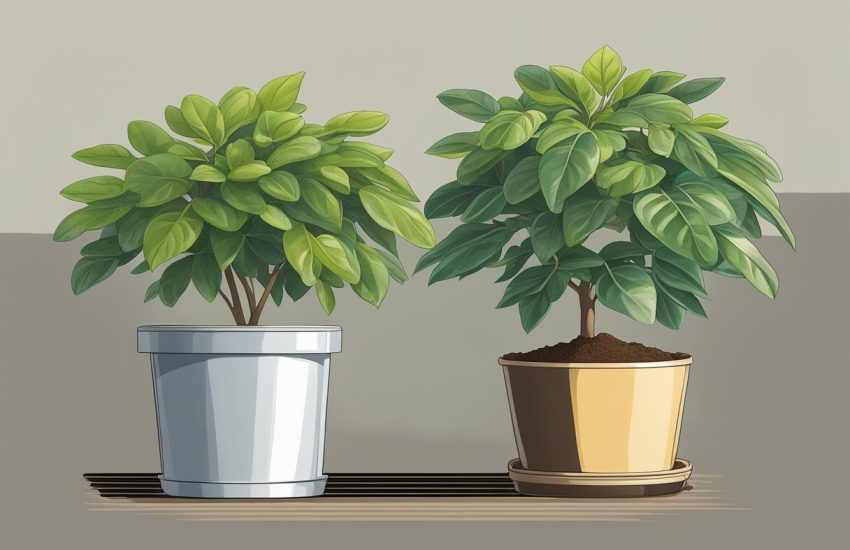Wandering Jew Plant Benefits: A Comprehensive Guide to Its Health Advantages
Last updated: January 25, 2026
The Wandering Jew plant, also known as Tradescantia or Tradescantia zebrina, is a popular houseplant that is loved for its unique and colorful foliage. This plant is native to Mexico and Central America, but it is now commonly found in homes all over the world. In addition to being a beautiful addition to any home, the Wandering Jew plant also offers a variety of health benefits.

One of the most notable benefits of the Wandering Jew plant is its ability to help fight inflammation. The plant is naturally high in antioxidants, which can help to neutralize free radicals in the body and reduce inflammation. This makes it a great choice for people who suffer from conditions like arthritis or other inflammatory diseases.
Another benefit of the Wandering Jew plant is its ability to help purify the air in your home. Like many other indoor plants, the Wandering Jew plant is able to absorb toxins and pollutants from the air, which can help to improve the overall air quality in your home. This can be especially beneficial for people who suffer from allergies or respiratory problems.
Cultivation and Care
Optimal Growing Conditions
The Wandering Jew plant is a relatively easy to care for indoor plant that can thrive in a variety of conditions. It prefers a warm and humid environment with bright, indirect sunlight. The plant can tolerate low light conditions but will not grow as well. The soil should be well-draining, and the potting mixture should be rich in nutrients. The plant requires regular watering, but the soil should not be waterlogged. Overwatering can lead to root rot, which is a common issue with this plant.
Propagation Techniques
The Wandering Jew plant is easy to propagate through stem cuttings. Take a cutting that is 3-4 inches long and has a few leaf nodes. Dip the cut end into rooting hormone and place it in moist soil. Keep the soil moist and the air around the cutting humid. A propagation chamber can make this process easier. The plant can also be propagated through division. Repotting the plant and separating the root ball into smaller sections will create new plants.
Common Issues and Solutions
The Wandering Jew plant is relatively pest and disease-resistant but can be susceptible to spider mites and aphids. These pests can be controlled with neem oil or insecticidal soap. Overwatering can lead to root rot, which can be prevented by ensuring the soil is well-draining. Brown leaf tips can be caused by underwatering or low humidity. The plant should be watered regularly and misted to increase humidity. Pruning the plant can prevent it from becoming leggy and promote bushier growth. Repotting the plant every 1-2 years can also promote healthier growth. Fertilizing the plant once a month during the growing season can provide additional nutrients.
In conclusion, the Wandering Jew plant is an easy to care for indoor plant that can thrive in a variety of conditions. By providing optimal growing conditions, propagating the plant through stem cuttings or division, and addressing common issues, the plant can thrive and provide many benefits to its caretaker.
Health and Environmental Benefits
Air Purification and Humidity Control
The Wandering Jew plant, scientifically known as Tradescantia zebrina, is an air-purifying plant that can remove harmful toxins from the air. According to ProGardenTips, the plant can filter out pollutants such as formaldehyde, benzene, and xylene from indoor air, contributing to a healthier living environment. Additionally, the Wandering Jew plant can help regulate humidity levels in a room, making it an ideal plant for bathrooms or other areas with high humidity.
Psychological and Aesthetic Advantages
In addition to its air-purifying and humidity-regulating properties, the Wandering Jew plant can also provide psychological and aesthetic benefits. The plant’s creeping and trailing growth habit makes it an ideal groundcover or hanging basket plant. Its variegated leaf colors and flowering inch plant can add a pop of color to any room.
According to Plantophiles, the Wandering Jew plant is non-toxic and safe for pets, making it a great choice for pet owners. The plant’s foliage and leaves can also help reduce allergies and improve air quality, leading to a healthier indoor environment.
Overall, the Wandering Jew plant offers a variety of health and environmental benefits, making it an excellent addition to any home or office. Its low maintenance requirements and adaptability to bright indirect light make it an easy plant to care for.


